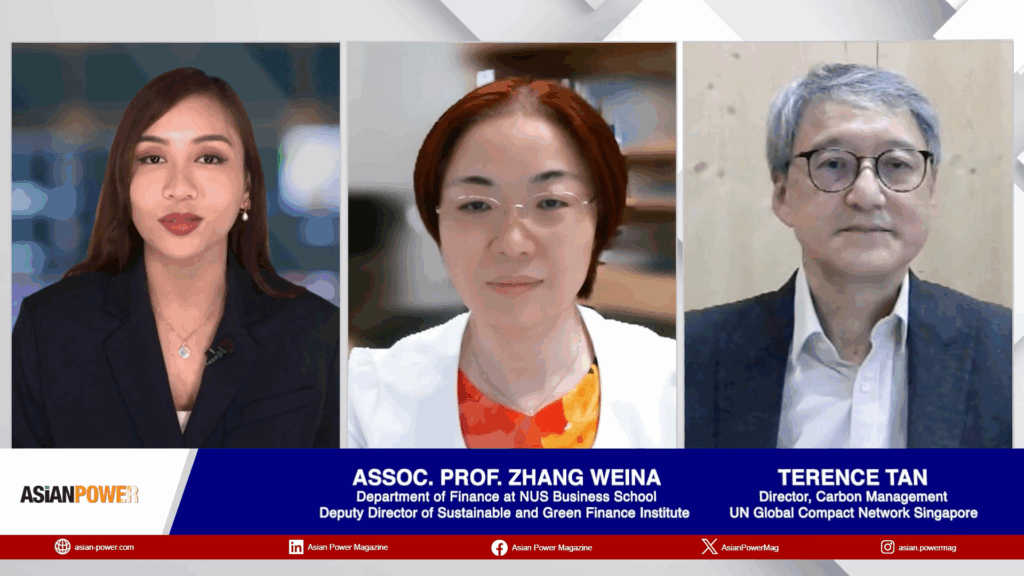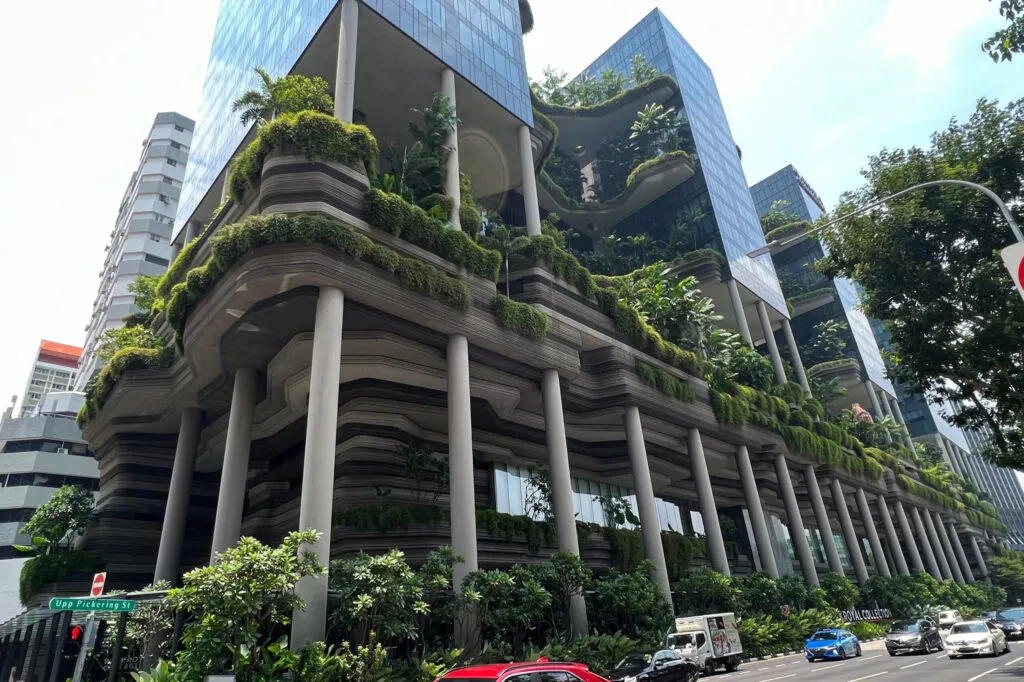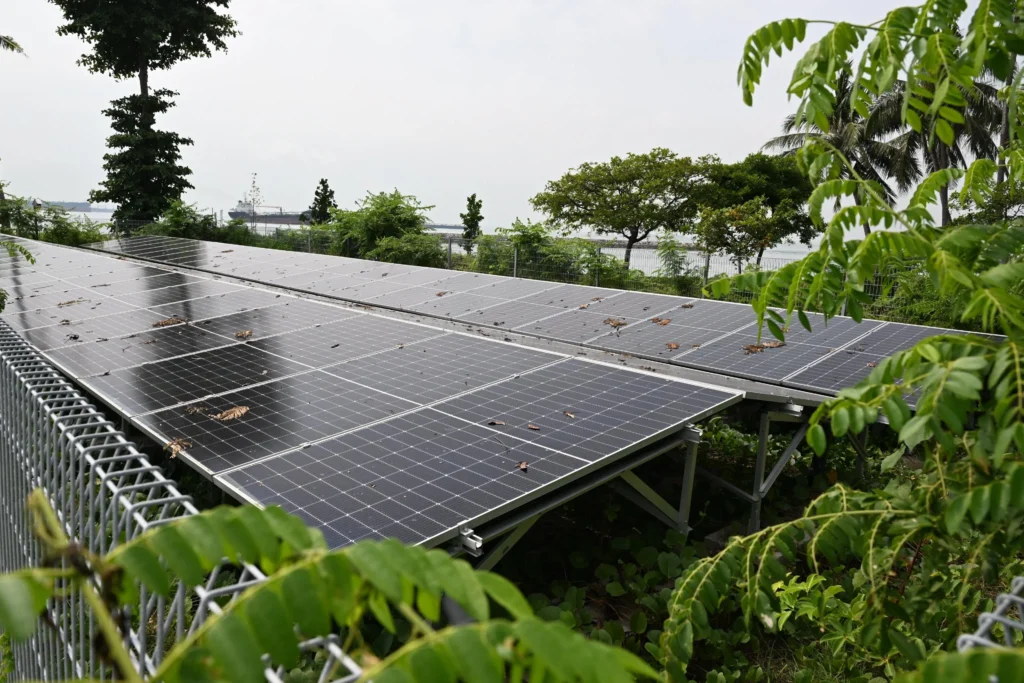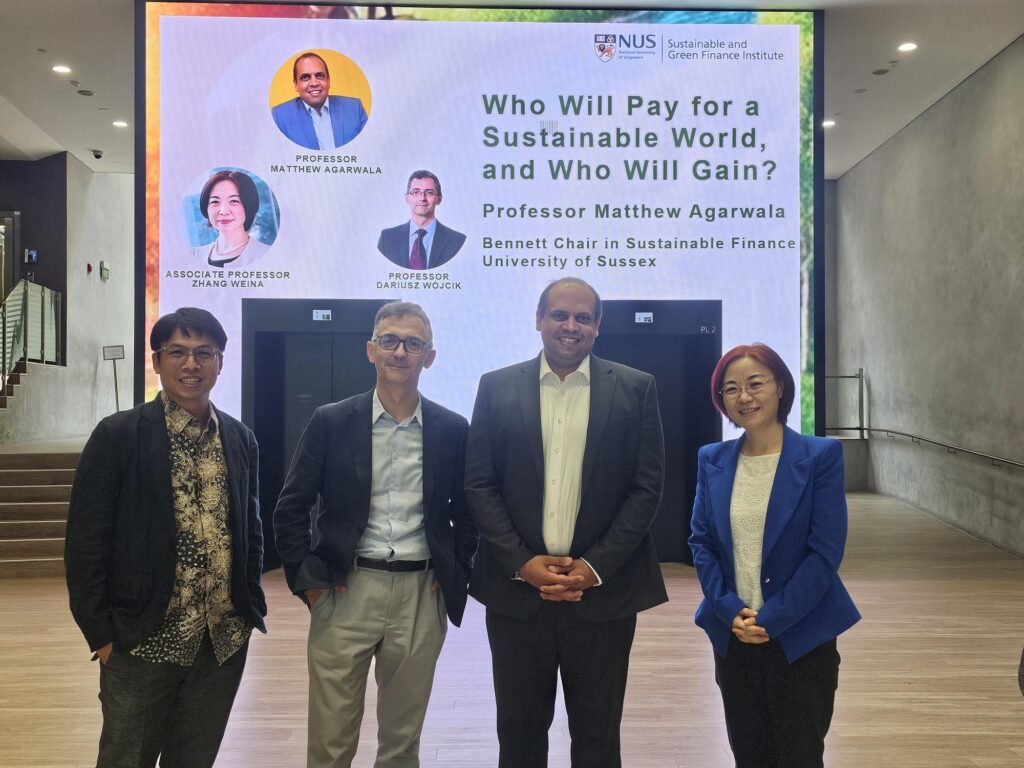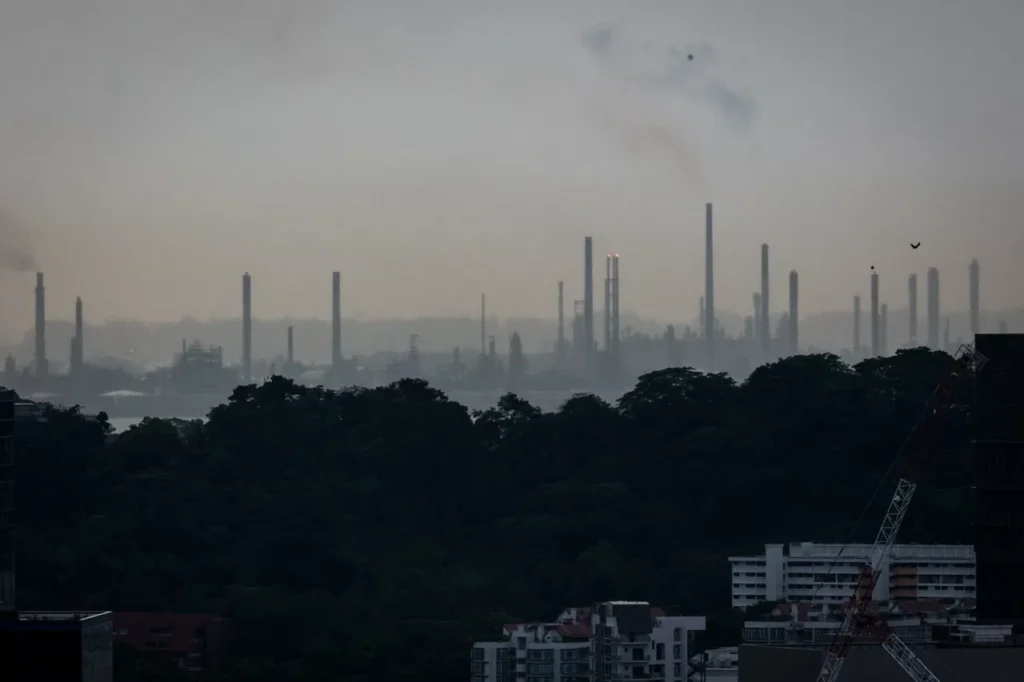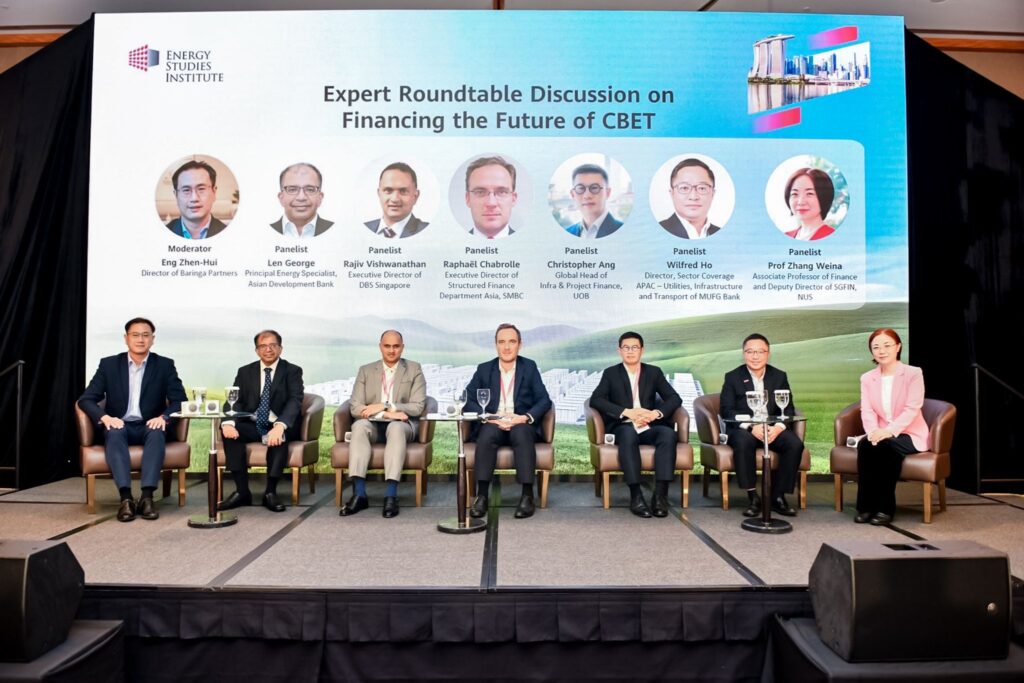SMEs Anchor Singapore’s Shift to Long-Term Carbon Management
Associate Professor Zhang Weina (Department of Finance) commented on the 4th Singapore Business Carbon Report, which found that 74% of businesses — mainly SMEs — cut their emissions through the LowCarbonSG programme. Prof Zhang noted that sharper insights are helping companies act more effectively, and that digital technology has empowered the companies, some even leveraging the data collected to uncover inefficiencies, thereby supporting their investment in opportunities that lead to cost savings and product innovations.
Asian Power articleLeading with Innovation: Rethinking Waste for a Sustainable Future
As Singapore contends with the prospect of Semakau Landfill reaching capacity, the imperative to re-examine waste management, recycling, and circular economy strategies has never been clearer. Speaking on CNA938 Rewind, Professor Johan Sulaeman, Director of SGFIN, highlighted that continued reliance on landfills is unsustainable. Progress lies in upstream interventions – from minimising waste generation and embedding design for reuse, to advancing recycling technologies and strengthening incentives for circular business models. With coordinated action across policy, regulatory frameworks, and consumer behaviour, Singapore has the opportunity to transform this pressing challenge into a model of waste resilience and sustainable innovation for cities worldwide.
Sustainability-linked finance: bridging nature disclosure gaps in Southeast Asia
SGFIN Director Professor Johan Sulaeman and Research Fellow Dr David Broadstock, together with two co-authors, contributed to this working paper, exploring the untapped potential of sustainability-linked finance (SLF) to address nature-related risks in Southeast Asia. As the region’s rich biodiversity faces increasing threats from deforestation, water stress, and land-use change, the paper presents the first comprehensive analysis of Southeast Asia’s SLF market and addresses critical gaps in integrating nature-related risks into financial instruments.
Using market analysis and a retrieval-augmented generation approach to classify key performance indicators (KPIs), the authors reveal that 60% of nature-related KPIs disclosed in corporate reports —particularly those related to water usage and waste management — are absent from SPTs in SLF deals, presenting significant opportunities for improved ecological accountability. The authors’ findings underscore the need for harmonising regional frameworks (e.g. ASEAN SLB Standards) with global guidelines like the Taskforce on Nature-related Financial Disclosures (TNFD) to standardise SPTs, improve transparency and mitigate greenwashing risks. Four policy implications for enhancing the transparency, credibility and scalability of SLF instruments in Southeast Asia are identified.
Bolstering the Singapore–Asia Taxonomy as a regional sustainable finance benchmark
In this article for East Asia Forum, Professor Johan Sulaeman (Director), Associate Professor Zhang Weina (Deputy Director) and Kim Seonghoon (Research Fellow) examine the Singapore–Asia Taxonomy for Sustainable Finance (SAT). The SAT has set rigorous standards for green and transition financing, establishing important benchmarks for ASEAN countries interoperable with the EU Taxonomy. To further its effectiveness and global relevance, the SAT should encourage more widespread adoption, raise public awareness of sustainable finance, maintain alignment with evolving global energy transition standards and conduct periodic assessments of its integration into decision-making processes.
Tariffs Test Southeast Asia’s Clean Energy Exports
In two recent Business Times (BT) articles, Professor Johan Sulaeman, Director of SGFIN, commented on the effects of US punishing tariffs on Southeast Asian manufacturers in the renewable energy sector.
In a BT article titled “Greater ASEAN integration could prevent tariff-induced slowdown in energy transition: observers”, Professor Johan Sulaeman discussed the impact of U.S. tariffs on electric vehicle (EV) supply chain exports from Malaysia and Thailand. He noted that while these exports face lower duties compared to solar products, the tariffs still affect the countries’ ability to remain significant players in the EV supply chain. However, he pointed out that EV-related exports from these countries maintain a competitive advantage in the U.S. market compared to those from China, whose EV exports constitute only a small fraction of the U.S. market despite being the world’s largest EV exporter.
Complementing these observations, another BT article titled “US punishing tariffs put South-east Asian solar exporters in China-plus-one strategy bind” featured Professor Johan Sulaeman’s comments on the broader implications of the U.S. tariffs on Southeast Asian solar exporters. He explained that these tariffs disrupt the “China-plus-one” strategy, where companies diversify manufacturing beyond China to Southeast Asia. The tariffs undermine this strategy by targeting Southeast Asian countries, thereby affecting their role in global supply chains.
Overall, Professor Johan Sulaeman emphasized that while Southeast Asian countries have benefited from supply chain diversification strategies, the imposition of U.S. tariffs poses significant challenges to their clean energy export sectors, particularly in solar and EV industries.
Who Will Pay For A Sustainable World, And Who Will Gain?
We were honoured to host Professor Matthew Agarwala, Bennett Professor of Sustainable Finance at the University of Sussex, for an insightful lecture on the vital role of nature in shaping the future of finance and economic development. He advocated for a new economic model that moves beyond GDP to include natural, human, social, and institutional capital, warning that continued environmental neglect risks mispricing assets and risks. Professor Agarwala presented his team’s innovative, data-driven framework for environmentally adjusted credit ratings to better reflect ecological realities, especially for vulnerable developing nations. A lively panel discussion with Professors Dariusz Wojcik and Zhang Weina emphasized the urgent need to rethink growth, invest in inclusive, long-term wealth, and improve funding mechanisms for small-scale, high-impact projects, particularly in Asia.
Incorporating Standard Disclosures into Carbon Credits Project
As the global demand for carbon credits continues to grow, so does the debate surrounding their actual impact. Questions remain over whether carbon credits truly deliver the environmental and economic benefits they promise—and how risk is effectively factored into their pricing remains a grey area for many stakeholders.
Our opinion piece, published through The Business Times, draws attention to the quality risks financiers and governments take on when supporting carbon projects. It highlights a pressing need for more robust project selection processes, supported by standardized frameworks. This is especially critical for countries like Singapore that are scaling up their carbon credit purchases to meet their Nationally Determined Contribution (NDC) targets.
To help chart a path forward, SGFIN released a whitepaper last year, offering an approach for evaluating carbon credit quality. The report breaks down the core pillars of a high-integrity carbon crediting framework, detailing both the essential requirements, and supporting criteria that enable carbon credit frameworks to align with the best practices out there. As the industry moves toward greater accountability and transparency, approaches like these are key to unlocking trust and scaling climate finance in a meaningful way.
Singapore Banks Flagged for Financing Harita’s Coal-Powered Nickel Smelters
In a recent Business Times (BT) article, Singapore’s three major local banks—OCBC, UOB, and DBS—have been named in a report by environmental group Market Forces for financing Indonesia’s Harita Group, whose nickel smelting operations are powered primarily by coal. OCBC led with US$635 million in loans since 2018, followed by UOB (US$201 million) and DBS (US$87 million). Even though all three Singapore banks have committed to cease the financing of new coal-fired power plants, financing the production of nickel does not fall under this remit even if the extraction activities are powered by coal.
Given the dominance of coal in Indonesia’s energy supply, banks are arguably caught between a rock and a hard place as their financing are limited by the constraints of the external environment they operate in. Associate Professor Zhang Weina, Deputy Director of SGFIN, offers her comments on the matter: While terminating financing for all carbon-intensive projects may not be practical, especially for transition-critical sectors like nickel mining, banks can take measured steps.
This article sheds lights on some recommendations on how to address the sustainable issues arisen from Asian EV battery producers.
Centre for Liveable Cities | Regenerative City Forum
A/Prof Zhang Weina was invited by the Centre for Liveable Cities (CLC) to present at the Regenerative City Forum workshop on 14 Mar 2025, which focused on “Enabling and Scaling Regenerative Design for Singapore.” She introduced SGFIN’s Integrated Return on Investment (IROI) framework, which measures Economic, Environmental, Social, and Governance (EESG) factors by considering interlinked designs, co-benefits, and externalities through causal relationships. The adaptable IROI approach, tailored to various stakeholder interests, was well-received by the audience. SGFIN researchers also joined group discussions to explore regenerative design for hypothetical sites, contributing to a rich exchange of insights across diverse sectors.
Government backing and geopolitical stability key to achieving Singapore’s climate targets
Singapore’s 2035 climate targets are achievable but pose significant challenges amid geopolitical uncertainties, experts say. Meeting the emissions reduction goal will require strong government support, international cooperation, and advancements in emerging technologies such as green electricity imports and carbon capture. However, the transition may drive up energy costs, potentially sparking public resistance. Several experts, including SGFIN’s Dr David Broadstock, shared their views on the issue.
CBET Thematic Workshop
On 17 Jan 2025, A/Prof Weina Zhang presented the findings on the impact valuation of energy transition projects in Asia at the Cross Border Electricity Trading Thematic Workshop. She shared the Integrated Return on Investment methodology, which assessed >350 green bond-financed projects based on economic, environmental, and social impacts. The findings revealed the pivotal roles played by multilateral development banks in more developing countries as well as attracting more private capital. Moreover, there is also room for improvement for corporate issuers in making more disclosures in the impact achieved. In the follow-up panel discussion on financing cross-border electricity trade, she also highlighted the importance of stakeholder collaboration to close funding gaps and mitigate risks together.
Recommendations by National Wages Council on Fair and Sustainable Wage Increase
Taking into account the sustained productivity growth, improved economic outlook, and expected moderation in inflation in 2024, the National Wages Council has recommended for fair and sustainable wage increments for workers. Prof Sumit Agarwal, Managing Director of SGFIN and Professor of Finance, Economics, and Real Estate at NUS Business School, shared his thoughts on this subject with Money FM 89.3.

